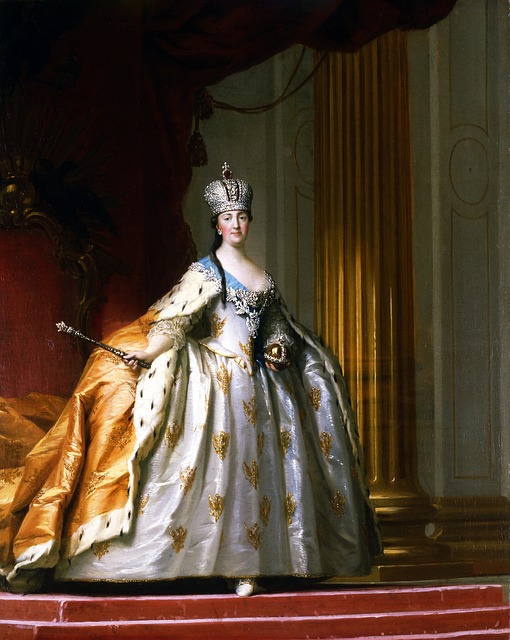
I’m back from a sojourn at the hospital. I was confined to getting antibiotics intravenously; later released to continue with a regimen of pills for 6 more days. I am feeling strange about it. On the one hand I didn’t have to get out of bed for 2 ½ days; feeling withdrawn in a lethargic passing of time. On the other hand, while I waited several hours to be admitted, I was able to finish reading Lewis Curran’s book on Diderot.
I find Diderot to be an ego that, like my own, fails to remain attached to social/cultural beliefs and tribal/racial identities. What I am attached to is a more objective experience of my ‘unaware self’ being able to embrace my social identity as ‘true’ or ‘real’, in particular, the ordinary kind of fixed identity with reality.
Diderot’s impact on ‘thinking’ is nothing less than a complete paradigm shift from believing what is assumed and observed is ‘true’ in feeling, thinking, and willing; as a human being is actually stripped from presumption and belief. His ‘role’ in the awakening to thinking freely is epic in what has awakened since in humankind’s neural character and functioning.
Without judging this to be ‘good’ or ‘bad’ it has awakened thinking into a new sphere of awareness of self, and in the awareness of the collective.
How, and if, we can use this to enhance our survival is highly speculative, but nevertheless, it binds humankind to an inclusive biological life on Earth, as to a divine religious fantasy.
The difficulty being in the sufficiency of this awareness, to penetrate the arcane delusions of self importance, to dominate humanity’s feeling-based beliefs and convictions.
I have little hope for this possibility, it too is sinking in the boat of hysterical, irrational belief. In the primal response of shutting down to any newly perceived information, information that would contradict current convictions, any possibility of a new awareness seems unlikely. In fact, it provokes violent attack on anyone who would seek to expose the rational to the irrational.
Most do not want to go there. Being neurologically bound and blind, they feel gravely threatened, offended, and hate-filled at such an intrusion. It is an automatic threat to their ego identity.
This dilemma is joined by ‘ideal-ism’ having to convert to ‘real-ism’. It penetrates into the primal character of the power of one’s identity and/or power distributions; of the hierarchy, the social order in which one and all species are neurologically and biologically embedded. So, when speaking of tyranny of power and the ideal of ‘individual liberation’ politically, we cannot escape the chaotic character of stimulating a psychological threat of losing these arcane identity processes.
This raises serious questions about the neural resources being available in sufficient capacity of the collective ‘self’ and of human group-life as a species. A daunting question, given how the ‘majority’ of humans are bound up in religious belief; it’s arcane heritage.
It will take a good deal of reflection to determine how this arcane, belief based, thinking process can be undermined in its detachment from ‘reality’. Currently it exists as psyche-guiding dogma . Anything like rational process gaining a place of influence in the ‘public’ dialogue seems doubtful. So why do it?
“I think therefore I am”, is appropriate. However, there are not enough free and developed minds to embrace such thoughts generally, especially in those whose consciousness is embedded with social and economic power.
I will relate an appropo dialogue between Denis Diderot and Catherine the Great of Russia. This has been given to us through a magical thought book titled, “Diderot and the Art of Thinking Freely” by Andrew S. Curran, of whom I cannot give enough praise and acknowledgment for my own thinking and understanding.
From p339:
“By December, Diderot had shared dozens of such forward thinking memoranda with the empress. And yet, he also began to realize that she was not taking his ideas to heart. According to an account that circulated in the 1780’s, Diderot interrupted their discussion one day to ask the empress, who was always very attentive during their conversations, why none of his suggestions had been implemented. Her answer spelled out very clearly just where Diderot’s jurisdiction began, and where it ended.
“Monsieur Diderot, I have listened with the greatest pleasure to all the inspirations flowing from your brilliant mind. But, all your grand philosophies, which I understand very well, would do marvelously in books and very badly in practice. In your plans for reform you forget the difference between our two roles: you work only on paper which consents to anything: it is smooth and flexible and offers no obstacles either to your imagination or to your pen, whereas I, poor empress, work on human skin, which is far more prickly and sensitive.”
I find this to be one of the most thought provoking images in the book because of both the high level of awareness the empress held between an idea and life, in its reality. It is the epitome of the awareness of the paradox between knowing and doing, between intellectual distance and practical consciousness.
The ‘mess’ of the revolutions associated with the enlightenment reflect the distinction between the ‘ideal’ and the ‘reality’, especially in the ‘governing’ of oneself as a functional paradigm, among what is the general and specific character of the individual’s heredity, and one’s self awareness.
For example, the knowledge, understanding and capacity to land on a common functional identity i.e. the ‘union’ of an image and the organic capacity in function. We can talk of ‘democracy’ as something where everyone agrees and feels unified, and at the same time avoid the reality of the distance that the shoe is from the foot of the reality of the limitations of human consciousness and behavior.
